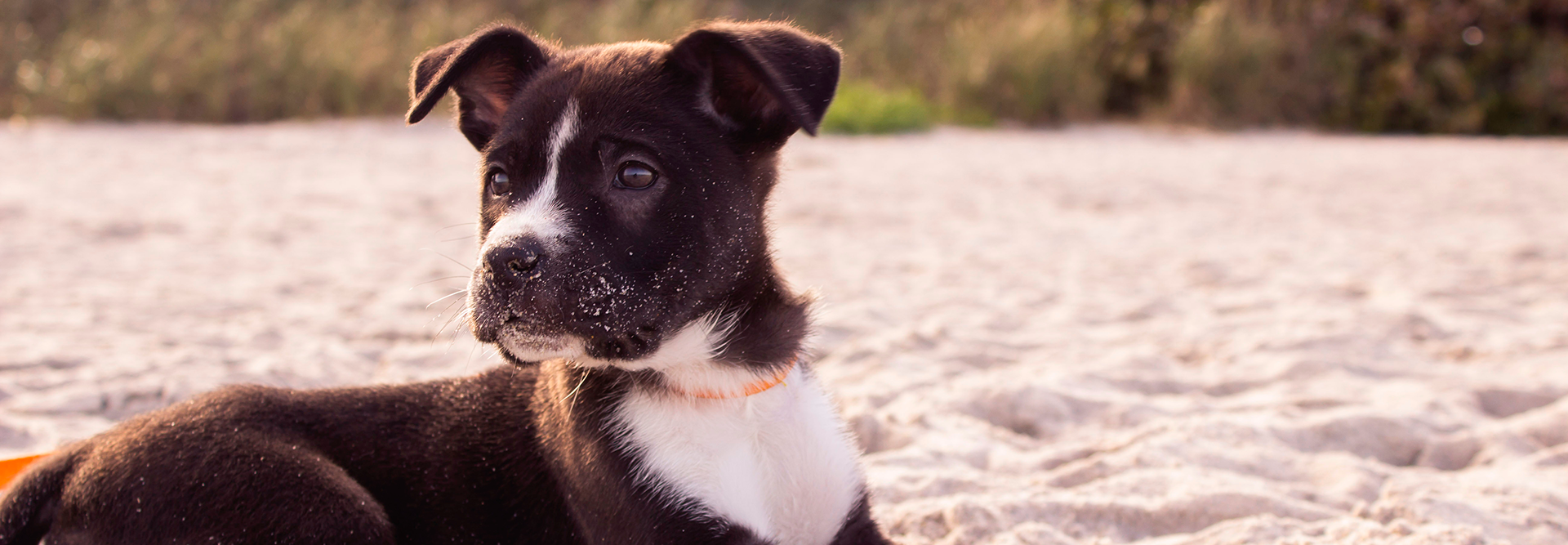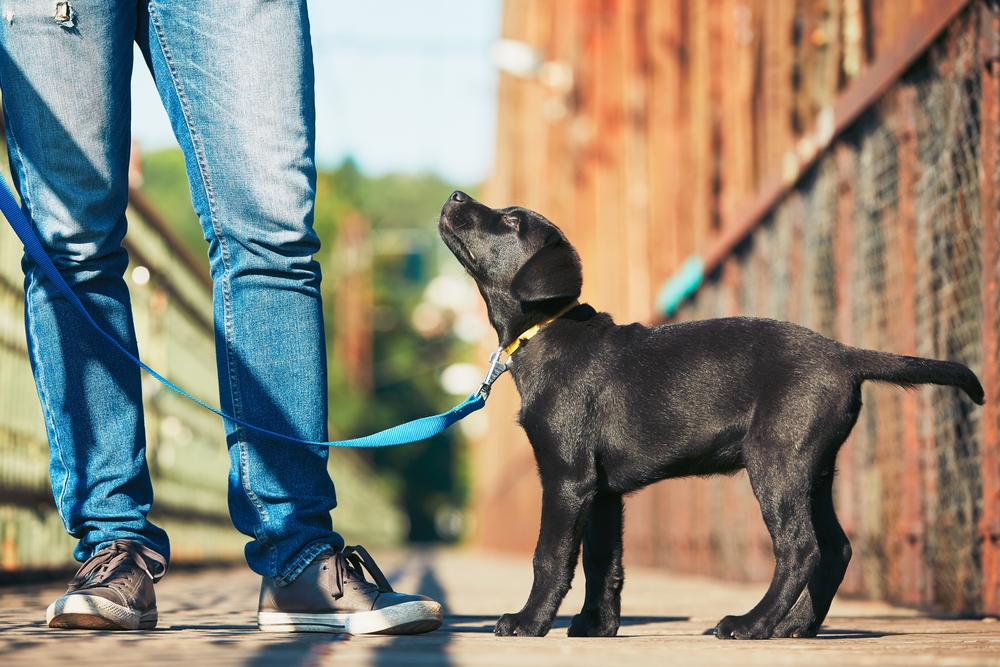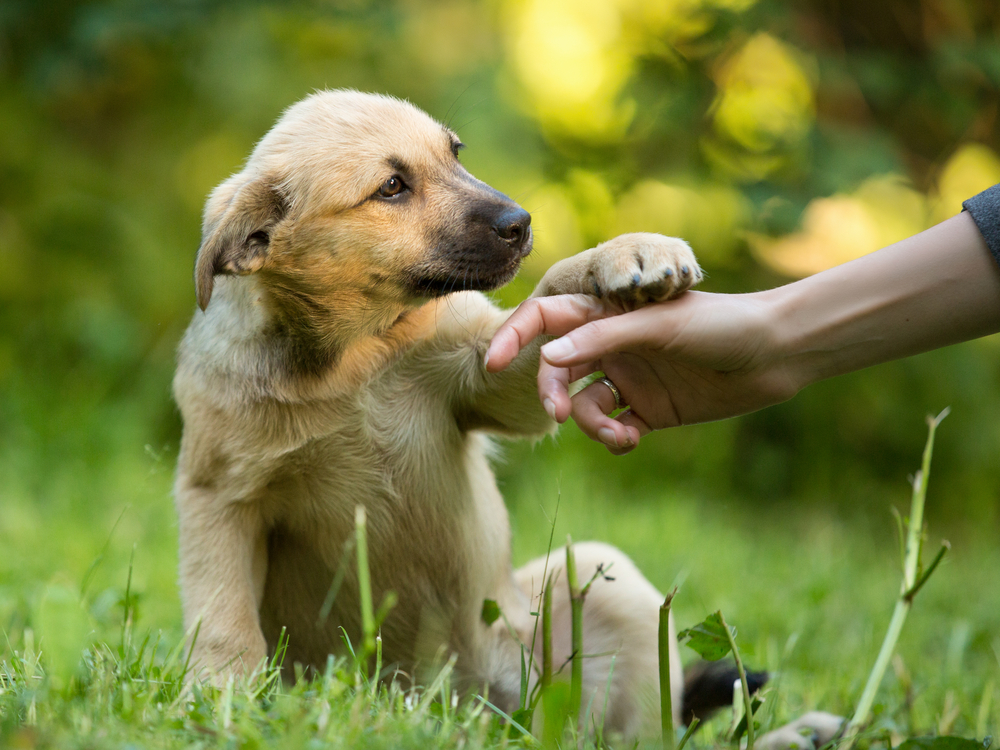
Many new puppy parents assume that training their puppy amounts to making sure the little guy doesn’t pee on the rug. But the fact of the matter is that puppies need their human parents to teach them the rules of living life. “Behaving” themselves actually does not come naturally to puppies, but the good news […]
Many new puppy parents assume that training their puppy amounts to making sure the little guy doesn’t pee on the rug. But the fact of the matter is that puppies need their human parents to teach them the rules of living life. “Behaving” themselves actually does not come naturally to puppies, but the good news is that your new fur baby is eager to learn and please you!
If this sounds like a tall order to you, you aren’t alone. Properly training your puppy is literally a full-time job! But it’s worth all the effort you’ll put in. Having a dog that you can communicate with because he understands you and understands what is expected of him is the greatest gift in the world!
You don’t have to become a professional dog trainer in order to thoroughly train your puppy. In fact, training your puppy in many of the areas above will happen organically as you live life day-to-day with your fur baby!
That being said, you might appreciate or need a little help training your puppy. This is where enrolling in puppy training classes can really come in handy. In this blog, Petland Florida is going to lay out the benefits of investing in puppy training.

There are a few different kinds of dog training courses out there. Some dog training classes are specifically for older, unruly dogs. For these classes, the owner drops their dog off and the dog is trained one-on-one by a professional. This type of class is best for people who adopt rescue dogs, for example, that may have behavioral problems that the owner cannot get under control. These classes or courses can be ongoing and the owner is charged per session. This way, the dog can continue being trained as long as it takes.
Another type of dog training course is for puppies and places an emphasis on puppy-owner bonding and socialization. This type of puppy training course is the most appropriate for you if you’ve recently taken home your fur baby. And this is the type of training course that we’re going to focus on in this article.
Puppy training courses like this are not the kind where the owner drops their dog off to be trained one-on-one by a professional. Instead, the classes are for you and your puppy to attend together. The professional trainer will actually train you how to communicate with and control your puppy!
This can be a wonderful bonding experience for you and your pup. And it gets even better. These classes are group classes where your puppy will be exposed to other puppies and their owners. This added layer of socialization can enrich your puppy’s development.
Typically, puppy training courses of this nature have a fixed number of classes and you pay for the entire course. Generally, a puppy training course is 6 weeks long, but you may find courses out there that are longer or shorter depending on the curriculum that’s being offered.
The specific curriculum of puppy training courses will of course depend on the facility. We recommend that if you’re calling around to find the best puppy training course for you that you ask as many questions as possible, especially those that address any challenges you’ve been facing with your new furry friend.
Whatever puppy training course you choose, you can expect the organization to use “reward based training” otherwise known as “positive reinforcement training.” This means that only good behavior and correctly obeying is rewarded. If and when your puppy fails to control himself, behaves badly, or doesn’t obey, then he receives no reward and is not permitted to continue until he holds still and gives you his full attention.
Reward-based puppy training is by far the most effective form of training. Using punishments has been proven not to work with dogs, and so this type of training has been discontinued. That being said, there may be times when negative reinforcement may need to be used, but this probably won’t occur during the puppy training course classes.
You would use negative reinforcements, or providing an experience your puppy doesn’t want, in order to reinforce the point that your puppy shouldn’t behave in a certain way.
For example, if you don’t want your puppy to jump up on people and you tell him “no,” but he ignores you and continues to jump up, then you’ll need to reinforce your “no” by putting him in his crate. By putting him in his crate after he has repeatedly jumped up despite you saying “no!” many times, he will finally understand that it never pays to ignore you and continue unwanted behavior.

One of the greatest benefits of buying a puppy from Petland Florida is that we offer our new pet parents puppy training perks. There are many puppy training options offered, from weekly training sessions in our stores, to Zoom call puppy training Q&As, to one-on-one training with a professional dog trainer.
From all the staff at Petland Florida, we highly recommend that you check us out if you want to get a new puppy! Our knowledgeable pet counselors can answer your questions and tell you about our puppy training perks! We hope to see you at one of our Florida locations in Pembroke Pines, Davie, Plantation, Kendall, Largo, Naples, or Doral soon!